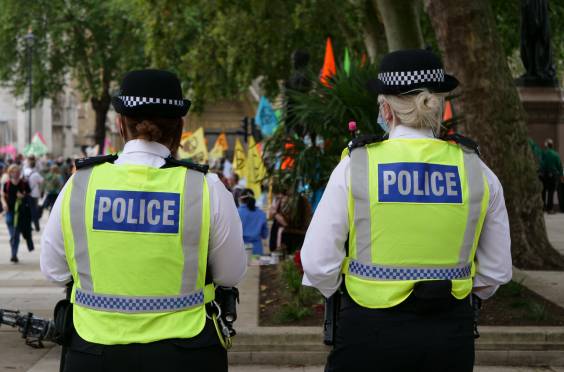Drugs – What Is The Difference Between Possession And Intent To Supply
Drugs – What Is The Difference Between Possession And Intent To Supply
Being caught with illegal drugs in your possession is likely to make your blood run cold with fear, especially if you have never experienced dealings with the police before. When it comes to drug offences - we will not sugar-coat it – you want to do everything possible to avoid being charged with possession with intent to supply. This is because, compared with the offence of possession, the charge and penalties are much harsher.
This article is designed to give you an understanding regarding the difference between the two offences. However, if you have been arrested on drug charges, the most important thing to do is to contact a Drugs Offences Solicitor as soon as you get to the police station and say nothing until they arrive. They will examine the charge sheet prepared by the Custody Officer and advise you regarding making a statement and/or being interviewed. Not having an experienced Solicitor by your side can easily result in you inadvertently incriminating yourself. And with the line between possession and possession with intent to supply being so fine, the last thing you want to do is deal with the police without expert support.
Before we look at the two offences, let us quickly cover the Misuse of Drugs Act 1971, which governs most drug offences.
What is the Misuse of Drugs Act 1971?
The Misuse of Drugs Act 1971 classifies drugs into three categories. Class A contains the most addictive and/or dangerous drugs such as heroin, crack cocaine, and LSD. Class B drugs include amphetamines and cannabis. Drugs that fall into Class C include GHB and Khat.
The most common types of drug-related offences are:
• Possession of a controlled drug.
• Possession with intent to supply.
• Production cultivation or manufacture.
• Supplying another person.
• Offering to supply another person.
• Allowing a property to be used to consume (cannabis or opium only), supply or manufacture controlled drugs.
What is possession of a controlled drug?
Possession means to have something on your person or within property under your ownership or control, for example a car or your home. Section 5 (1) of the Misuse of Drugs Act 1971 states that “it shall not be lawful for a person to have a controlled drug in his possession.”
What does possession with intent to supply mean?
Possession with intent to supply is an offence under section 5(3) of the Misuse of Drugs Act 1971. The police will consider several factors when deciding whether you intended to supply controlled drug, including:
• How much of the drug you have in your possession.
• If you have any messages on your phone that indicate, you may be supplying the drugs.
• Are the drugs packed in individual ‘deals’.
• Witness statements from people who have seen you supplying drugs.
You do not need to be selling drugs for a profit to be charged with intent to supply, simply giving controlled drugs to your friends at a club amount to an offence.
What is the sentence for possession and possession with intent to supply
The minimum and maximum sentences for possessing a controlled drug depend on the class of drug you were caught with.
The Sentencing Guidelines provide the following starting points for sentencing, with aggravating and mitigating factors being considered to increase or shorten the final sentence handed down.
Class A
Maximum: 7 years’ custody
Offence range: Fine – 51 weeks’ custody
Class B
Maximum: 5 years’ custody
Maximum when tried summarily: 3 months’ custody or level 4 fine
Offence range: Discharge – 26 weeks’ custody
Class C
Maximum: 2 years’ custody
Maximum when tried summarily: 3 months’ custody or level 3 fine
Offence range: Discharge – Medium community order
It is unlikely you would be sent to prison on your first offence.
When it comes to sentencing for possession with intent to supply, the Judge will use the following starting points:
Class A
Maximum: Life imprisonment
Offence range: High level community order – 16 years’ custody
Class B
Maximum: 14 years’ custody and/ or unlimited fine
Offence range: Band B fine – 10 years’ custody
Class C
Maximum: 14 years’ custody and/ or unlimited fine
Offence range: Band A – 8 years’ custody
As you can see, the sentences for intent to supply are much higher which is why you want to avoid this charge in so far as possible.
What should I do if I am caught with drugs in my possession?
The first thing you must do is contact an experienced Drugs Offences Solicitor. You have the right to do this when you reach the police station. They will look at the circumstances of your arrest and give you the best advice regarding responding to police questions. They will also ensure your rights are protected, for example, you get something to eat, and any medication brought to you.
If you are charged with an offence, your Solicitor will immediately start building your defence. The police may choose not to charge you immediately but release you on pre-charge bail whilst they continue their investigations. Your Solicitor will challenge this decision, and any conditions attached to the pre-charge bail.
Although you may be frightened, you do not have to face the police and court alone. Our Criminal Defence Solicitors are here to help you and protect your best interests.
If you have any questions regarding this article, please call us on 0300 3732424.

